Our story
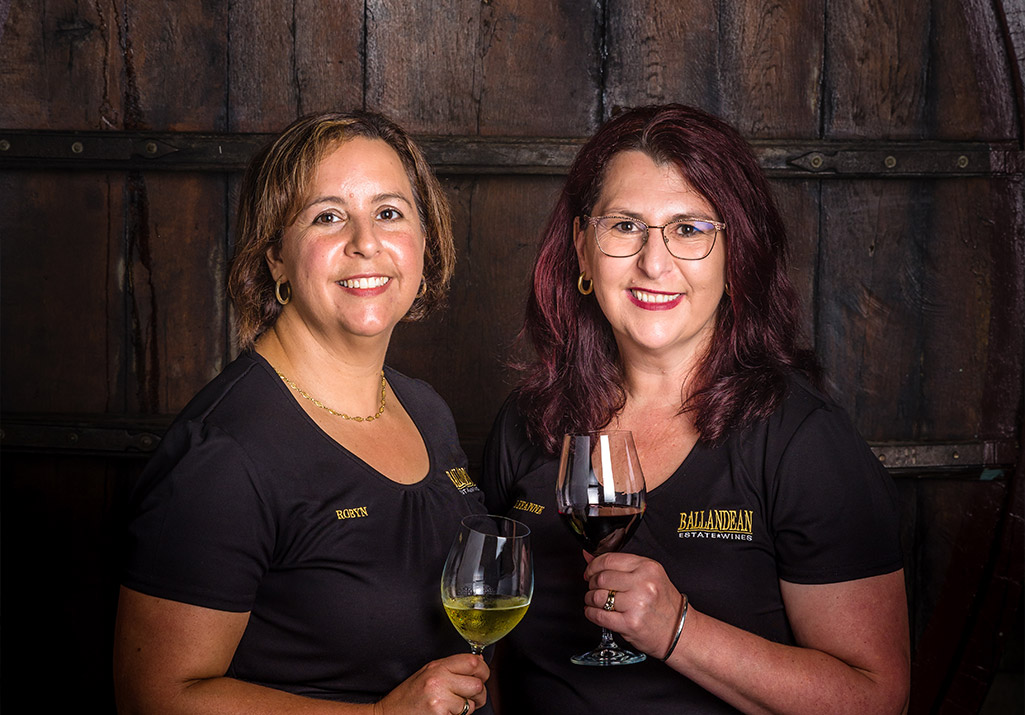
We are Queensland’s oldest family-run winery.
Ballandean Estate blends the passion of five generations to deliver premium cool climate wines. Our vineyards are located in the heart of the Granite Belt, over 800m above sea level.
Wine has been made on the Estate since 1932, while the cellar door was opened to the public in 1972.
Let us gather our storytellers and share our family wine story with you. Robyn Puglisi-Henderson & Leeanne Puglisi-Gangemi
We are exceptionally proud of our contribution to the unfolding story of the Granite Belt Wine Region. The future of the Granite Belt as a successful Australian wine region is in the hands of many talented professionals — and our future generations will continue to be an integral part of the story.
Salvatore Cardillo emigrates from Sicily
In 1911, oppression and affordability provided little promise of a good future for Salvatore Cardillo in his homeland of Sicily. Other countries seemed to have unlimited opportunities and for that reason Salvatore chose to seek a new life in Australia. He settled in Far North Queensland and worked on the railways for three years. In 1914 he returned to Sicily to collect his wife but on the boat journey home World War 1 broke out and he was forced to stay in Italy for the duration of the war. Over the next 6 years, 5 children were born and in 1920 Salvatore was ready to return to his chosen homeland, but his wife was not. He went anyway! Within a couple of years he convinced his second daughter to join him and they bought a sugar cane farm in Moresby, south of Innisfail. Subsequently, two more daughters arrived to live in Australia, leaving their mother and two younger siblings back in Sicily.
The success of the farm in Moresby and its subsequent sale gave Salvatore the seed money to move to Stanthorpe with his third daughter Josephine, where Italians had already started to farm fruit and vegetables.
In 1930, Salvatore bought the Ballandean farm, which had crops of vegetables, fruit and table grapes. Together he and Josephine cleared the land and farmed stone fruit, vegetables and grapes. They made wine from the table grapes and sold it to other Europeans living in Queensland.
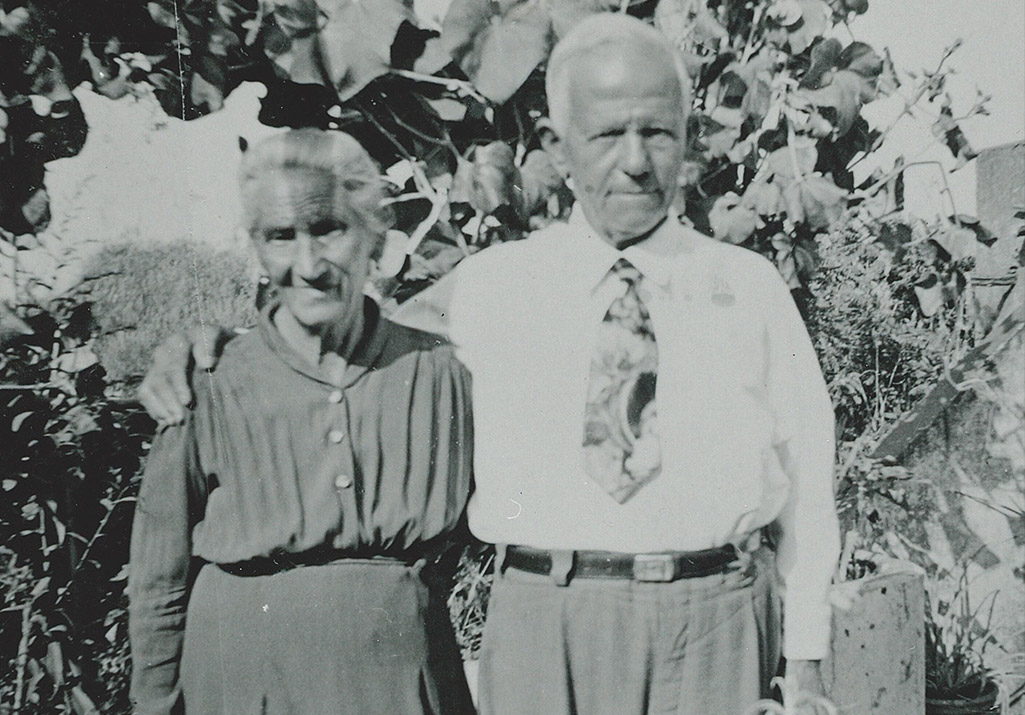
Puglisi family vignerons, established 1932
Winemaking at Ballandean Estate was first established in the early thirties, when Salvatore Cardillo and his daughter Josephine settled in the Stanthorpe area.
Grapes on the family farm were made into wine for the first time in 1932. In 1942 Josephine married Alfio Puglisi. She went on to build the foundation of Ballandean Estate with her father and husband over four decades.
In 1942, Josephine stared down the Australian army who were demanding to put her husband and father in internment camps and surrender of farm machinery during World War 2, and instead, she negotiated a deal to supply their crops to feed the Army as an alternative.
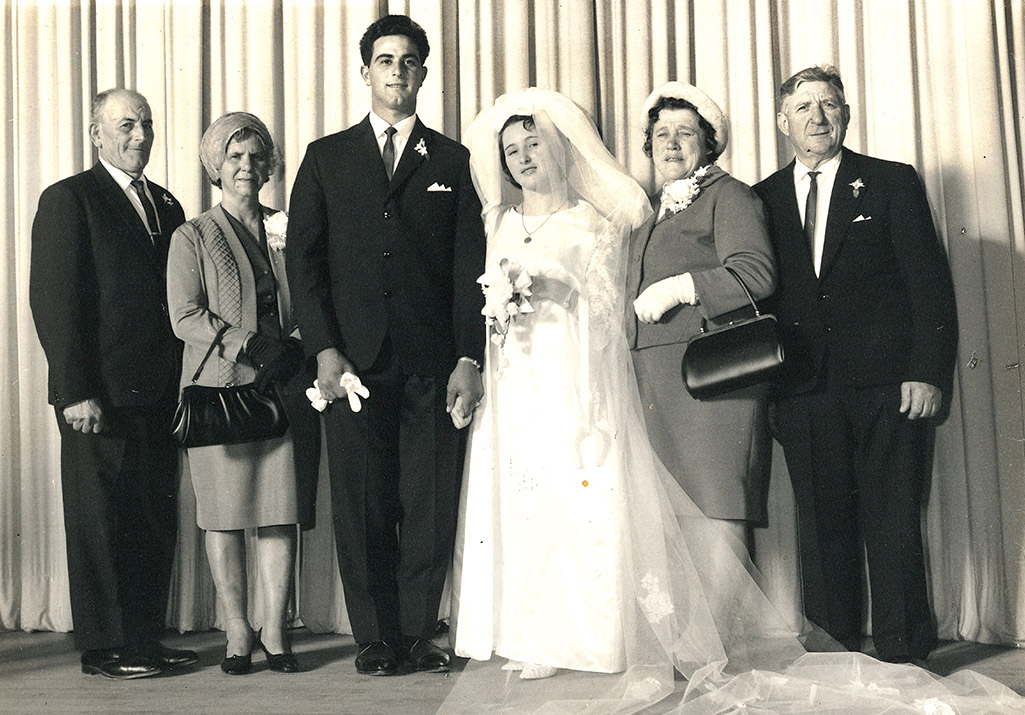
Wine industry pioneers
When Angelo and Mary Puglisi took over the farm from Angelo’s parents in 1968, they saw the potential for a new industry and began to make wine commercially. Angelo and Mary replanted the vineyard, moving from table grapes to wine grapes. These were some of the first wine grapes to be planted on the Granite Belt, a modest beginning for this now multi-million-dollar industry.
The Cellar Door was opened in 1972 and through the years has welcomed tens of thousands of visitors per year to taste wines and enjoy the hospitality.
The next generation, daughters Leeanne and Robyn with husbands Mario and Ian have played an integral part in the journey to where Ballandean Estate is today. From production to sales and business management, this family business has steadfastly promoted and defended the quality of Queensland wines on the world stage for decades.
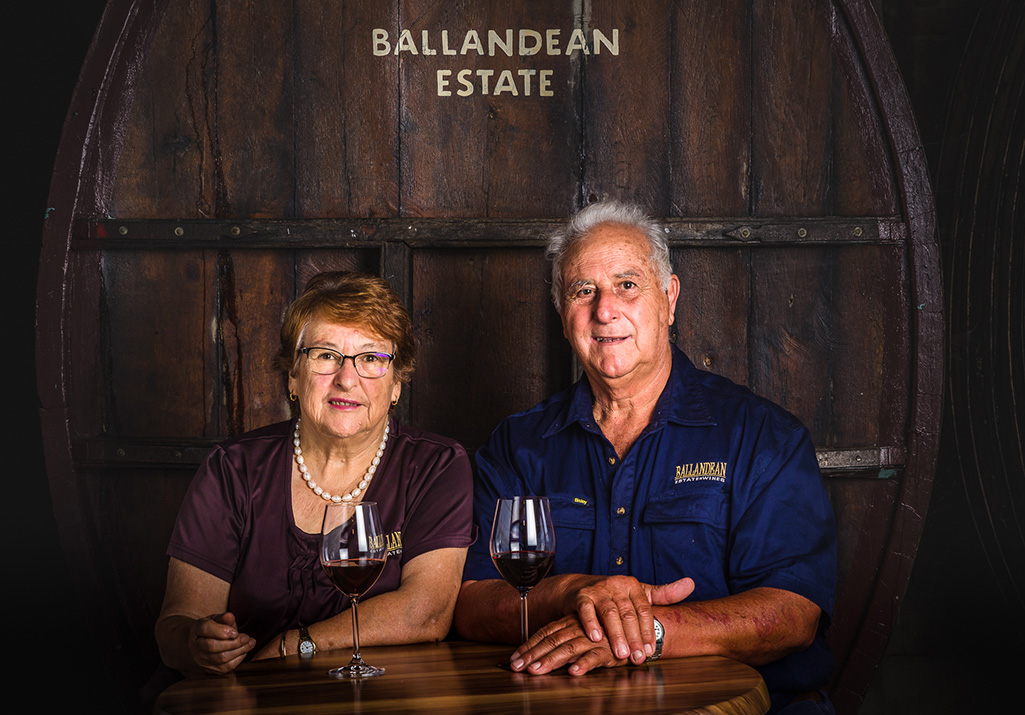
50 years of Shiraz
2018 saw the release of Ballandean Estate’s 50th Anniversary Opera Block Shiraz, a milestone for the Granite Belt, the Puglisi family and Queensland wine.
In a nation where most producers pulled up their vines in the late eighties at government behest, this is a remarkable achievement, and testament to the vision of Angelo and Mary Puglisi, pioneers of the wine industry in Queensland.
Newlyweds Angelo and Mary Puglisi embarked on their lifelong wine adventure in 1968 as they founded Queensland’s oldest family-owned and -operated winery. Little did they know that their decision to plant their first block of Shiraz would cement the Puglisi winemaking future.
2018 was an exceptionally low-yielding year—with only 150 dozen of the Opera Block Shiraz produced. The long ripening season and cold nights delivered a delicate cool climate Shiraz, intense purple with concentrated berry fruits.
Angelo saw the versatility of Shiraz in the established wine regions of the Barossa and Hunter Valley. He couldn’t resist the challenge of establishing this varietal in Queenslands cool climate high-altitude wine region.
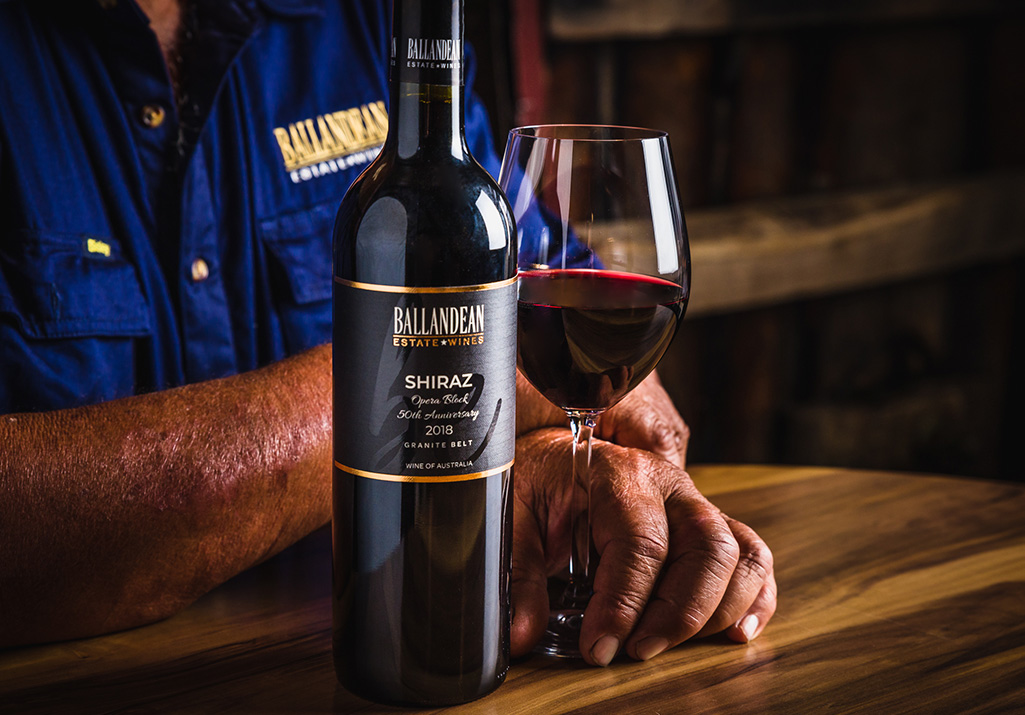
Vineyards
Established 1932 — Queensland’s oldest winery and home to 50-year-old Shiraz vines.
We have two vineyards in Ballandean: Ballandean Estate and Bellevue. Our free-draining granitic soils, cool climate and high altitude provide us with the perfect conditions to create national and international award-winning cool climate wines.
The original vineyard, 800m above sea level, is situated on Sundown Road Ballandean. It was first planted by Salvatore Cardillo in 1932.
The oldest vines on this vineyard date back to 1968, when Angelo Puglisi cemented his future in winemaking by planting a block of Shiraz vines in 1968 and Cabernet vines in 1975 on his Ballandean farm.
Those first vines have been lovingly nurtured over the last 50 years and now produce the award-winning Opera Block Shiraz and our signature wine Generation 3 Shiraz Cabernet—refined, elegant with intense fruit typical of a cool climate profile.
We are growing shiraz, merlot, cabernet sauvignon, sauvignon blanc, malbec, semillon, cabernet franc, sylvaner, malvasia, fiano, nebbiolo, white muscat and muscat giallo on this vineyard.
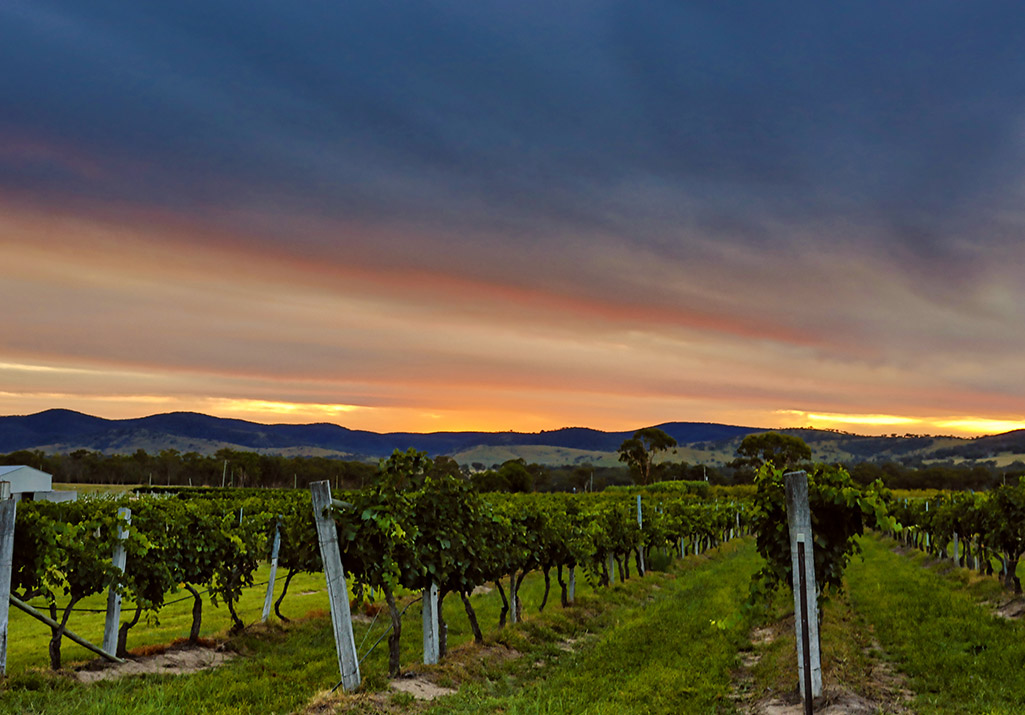
The second vineyard Bellevue was purchased in the late 1990s. It is 850m above sea level and situated on a hill overlooking the Girraween National Park.
Vines were planted on the slopes of the Bellevue vineyards in the early 1970s.
We are growing shiraz, saperavi, merlot, cabernet sauvignon, chardonnay, semillon, cabernet franc, durif, fiano, black and white muscat on this vineyard.
The granite soils reflect heat onto the fruit — speeding the ripening during the day, with cool temperatures overnight — resulting in mature, intensely-flavoured fruit.
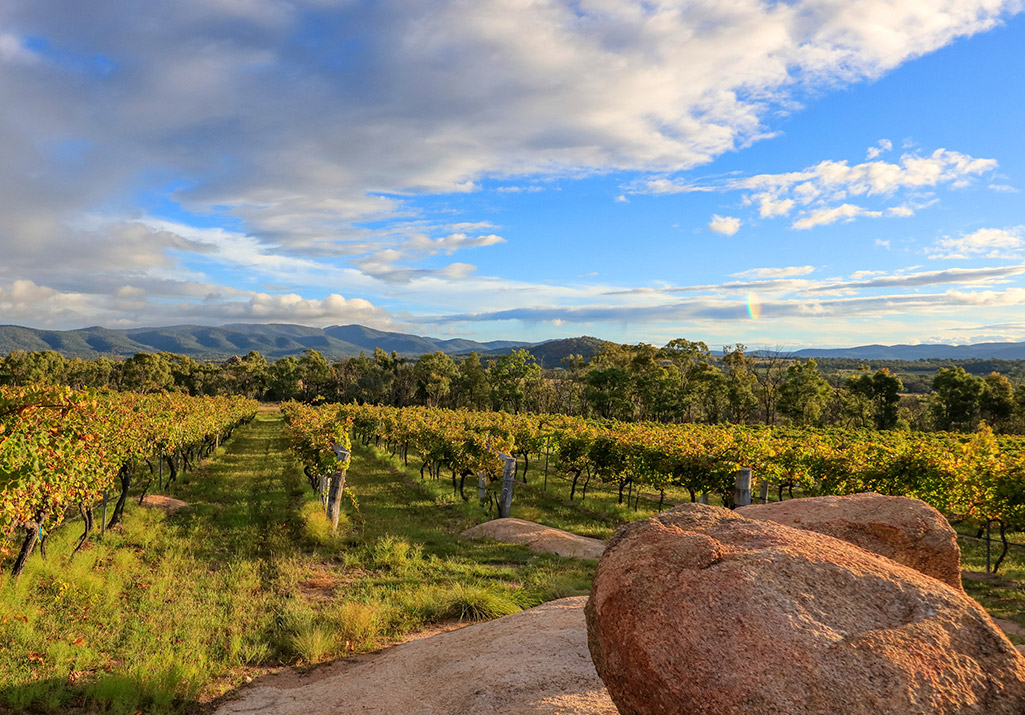
Rare and alternative wines
Producing quality, boutique wines that express the unique characters of the Granite Belt in Queensland is what keeps the Puglisi family innovative. We love experimenting with alternative varietals.
Ballandean Estate owner Angelo Puglisi planted his first Strange Bird™ variety Malbec in 1984. A wine pioneer, Angelo’s vinicultural vision has delivered 13 new Strange Birds™ for the Granite Belt Geographical Indication. In early 2019, we launched Queensland’s 27th Strange Bird™, Malvasia , the first to be released on the Granite Belt.
Ballandean Estate blends the history of five generations with modern winemaking methods, resulting in a remarkable wine experience.
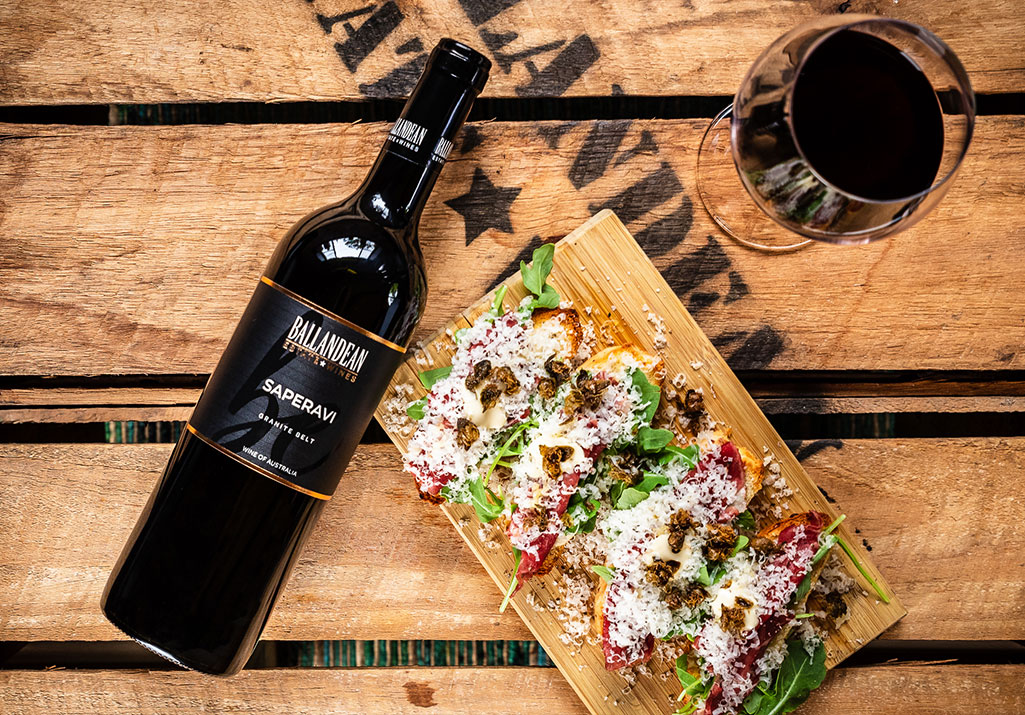
What makes the Granite Belt’s climate unique?
The Granite Belt is situated on the northern edge of the great New England Tableland, right on the border between Queensland and NSW.
Our spring frosts, sub-zero winter nights, cold nights at the beginning and end of the season and low humidity all contribute to the outstanding growing conditions for premium wines on the Granite Belt. These growing season temperatures are comparable to the Clare Valley, the northern Rhone (Hermitage and Cote Rotie) and Bordeaux.
Less than 1% of Australian vineyards are located 600m above sea level.
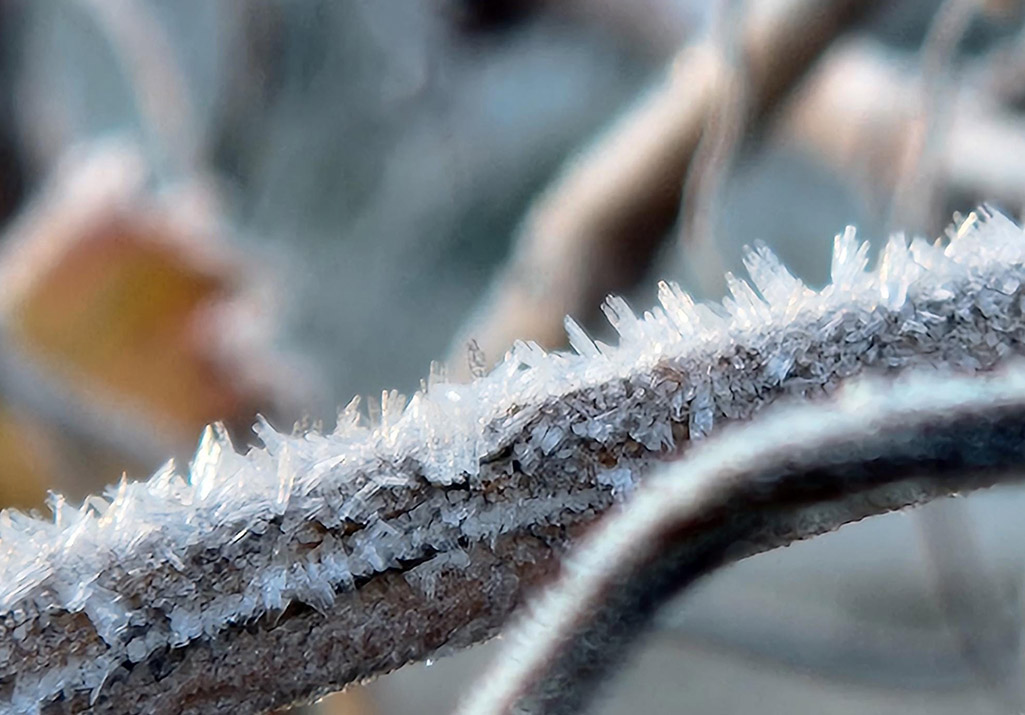
What’s great about cool climate wine?
- First and foremost, it expresses the terroir — the sense of place, which you don’t always see in warmer climates.
- Cool climate wines are medium-bodied, fresh and focused, with refined tannins, impressive flavour intensity and moderate alcohol levels.
- High altitude delivers much-prized natural acid, enhancing freshness, structure and lift.
- Grapes ripen slowly, with steady tannin development and flavour accumulation.
- UV light at altitude concentrates flavour compounds and produces higher but softer tannins.